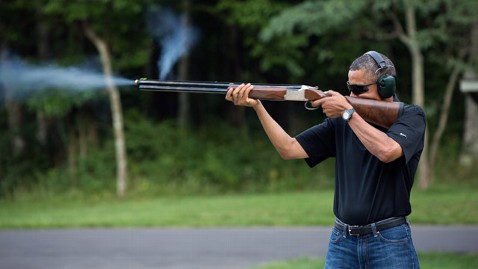DAMASCUS: Syria's opposition chief on Monday urged President Bashar al-Assad's regime to respond positively to his call for talks to end almost two years of violence which has left more than 60,000 people dead.
"The ball is now in the regime's court. They will either say yes or no," Ahmed Moaz al-Khatib told pan-Arab channel Al-Jazeera, following up on his surprise announcement last week that he was ready for dialogue with the Damascus regime -- subject to conditions, including the release of 160,000 detainees.
Later he told Al-Arabiya news channel that he was ready to talk to Assad's deputy, Vice President Faruq al-Sharaa.
"Since the start of the crisis, Mr Sharaa has seen that things are not going in the right direction," said Khatib. "If the regime accepts the idea (of dialogue), I ask it to delegate Faruq al-Sharaa for us to hold discussions with him."
Assad last month announced he was ready for talks with the opposition but ruled out meeting groups -- such as Khatib's National Coalition -- which back armed rebels seeking to overthrow the Damascus regime.
For their part, opposition groups, including the National Coalition, have in the past demanded Assad step down before peace talks can begin.
"Doctor Bashar, this country is in grave danger, come out of your bubble, if only for a moment. Look into the eyes of your children and you will recover some of your humanity," Khatib said, addressing Assad by the term adopted by state media and his supporters.
"We can help each other in the interest" of the people, Khatib said.
"The regime needs to take a clear position. We will extend our hands for the sake of the people, and in order to help the regime leave in peace," he said.
Khatib's statement last week on negotiations with conditions attached was backed by the Coalition, a grouping of externally-based opposition groups, but only if they led to the fall of the regime.
While some opposition figures immediately denounced Khatib's proposal as traitorous, he said on Monday he "rejected" the label.
"Our people are dying, and we will not allow that," Khatib said.
His comments came as Iranian Foreign Minister Ali Akbar Salehi said in Berlin that Tehran would continue talks with Khatib following a preliminary meeting Sunday on the sidelines of a security conference in the southern German city of Munich.
"We had 45 (minutes) to an hour discussion which was very fruitful... and we committed ourselves to continuing this discussion," Salehi told a foreign-policy think-tank in Berlin of his meeting.
Khatib also held a meeting in Munich on Sunday with Russian Foreign Minister Sergei Lavrov, who while expressing an interest in "maintaining regular contact" with the opposition, also said the dissidents' insistence on Assad going was "the main reason for the continuation of the Syrian tragedy."
Adding to the latest flurry of diplomatic activity, another Iranian official, Saeed Jalili, the head of his country's Supreme National Security Council, was in Damascus on Monday where he renewed Tehran's support for Assad.
Jalili also issued a warning to Israel after the Jewish state confirmed an air strike near Damascus, saying it will regret its latest "aggression against Syria".
"Just as it has regretted all its wars... the Zionist entity will regret its aggression against Syria," Jalili said.
"Syria is at the forefront of the Muslim world's confrontation with the Zionist entity," he added.
Also in Munich on Sunday, Israeli Defence Minister Ehud Barak implicitly confirmed that the Jewish state had staged the air strike on Syria, following reports of an air raid which Damascus said targeted a military complex near the capital.
Last Wednesday's air strike targeted surface-to-air missiles and an adjacent military complex believed to house chemical agents, according to a US official.
Meanwhile, Russian authorities announced the release of two Russians and an Italian citizen kidnapped by "extremists" last year in Syria. They were "released in exchange for militants," Russia's foreign ministry said.
On the ground in Syria, at least 40 people were killed in violence on Monday, including six children who died when regime warplanes raided the outskirts of the rebel-held town of Douma near Damascus, the Syrian Observatory for Human Rights said.
At least 13 insurgents were also killed in fierce battles that raged in other areas of Damascus province, said the watchdog which relies on a broad network of doctors, activists and lawyers to compile its reports.
- AFP/jc










